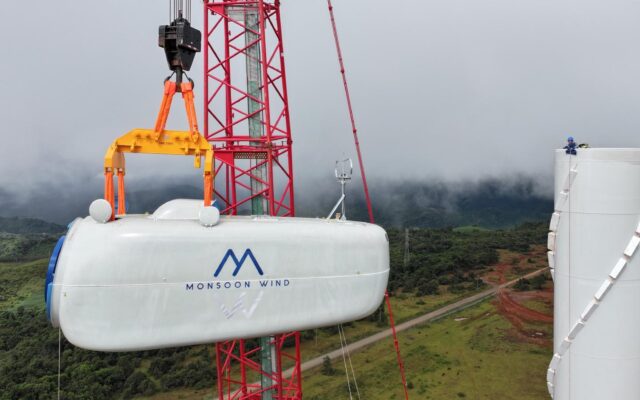Power exports are one of the key economic drivers of the Lao People’s Democratic Republic (Lao PDR). The country is focusing on promoting cross-border power exports while meeting domestic electricity demands to drive socioeconomic growth. Developing large hydropower projects and exporting electricity to neighboring countries in the Greater Mekong Subregion, such as Thailand and Viet Nam, have been key government priorities. The Lao PDR seeks to establish itself as a major electricity exporter for the region.

Aside from large hydropower, the Lao PDR has the potential to develop renewable energy sources such as solar, wind, biomass, and small hydropower. The government has also been exploring solar and wind resources to diversify the country’s energy resources, which can provide economic benefits similar to hydropower but with a lower ecological and social imprint.
The Monsoon Wind Power Company Limited (Monsoon) is building the first wind power plant in the Lao PDR. Set to be Southeast Asia’s largest wind power plant, the project is a step forward in the country’s energy diversification. Wind power’s seasonality is countercyclical to rainfall in the Lao PDR, which makes the resource highly complementary to the country’s hydropower generation.
Electricity produced by Monsoon will be exported to neighboring Viet Nam. It will be sold to Vietnam Electricity, the state-owned electricity utility, through a power purchase agreement.
In 2023, ADB and the Monsoon Wind Power Company Limited signed a $692.6 million project financing package to build the Monsoon Wind Power Project in the Lao PDR.
As the sole mandated lead arranger and book runner, ADB arranged, structured, and syndicated the entire financing package—the largest syndicated renewal project financing transaction among ASEAN countries to date.
The financing package includes a $100 million A loan from ADB’s ordinary capital resources, $50 million in concessional financing from ADB-managed blended finance funds, and a $10 million grant from ADB’s Asian Development Fund–Private Sector Window to help mitigate key project risks, including potential curtailment risk, which is a key bankability issue for lenders.
The $150 million syndicated B loan comprises $100 million from Siam Commercial Bank and $50 million from Sumitomo Mitsui Banking Corporation.
Parallel loans include $120.0 million from the Japan International Cooperation Agency, $100.0 million from Kasikornbank, $72.6 million from the Asian Infrastructure Investment Bank, $60.0 million from the Export-Import Bank of Thailand, and $30.0 million from the Hong Kong Mortgage Corporation Limited.
“ADB’s cutting-edge use of blended finance and the grant from the Asian Development Fund–Private Sector Window were critical in overcoming the wind power plant’s bankability hurdles to crowd in commercial capital,” Gaboury said.

